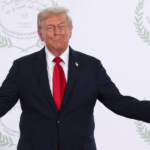Those stark trade-offs are sparking fierce debate and some dissent from within the GOP’s ranks.
“The fundamental problem that Republicans face is that they support a level of tax revenue that is not nearly enough to pay for the government spending that most Republicans also support,” Doug Elmendorf, professor of public policy at Harvard’s Kennedy School of Government, told Fortune. “So you have camps of people, some of whom really do want to cut spending way back to align with the level of revenues they support, but also other Republicans who understand that the American people don’t want to give up the principal benefits and services they receive. That camp does not want to cut spending back, they want to hope that the deficit problem goes away.”
Beyond Capitol Hill, Trump’s bill is drawing rebukes from influential corners of the business and cultural worlds.
Musk’s criticism focused on provisions in the bill that would eliminate Biden-era tax credits for renewable energy, such as solar, wind, and battery manufacturing. The clean-energy tax credit amendments are also a point of concern for Sen Lisa Murkowski (R-AK).
The Tesla CEO’s opposition to the bill’s energy provisions touch on certain key weaknesses in the bill, according to Elmendorf. Aside from being potentially harmful for companies invested in the clean-energy business, he said the provisions would also raise electricity prices for many Americans.
“It’s an odd thing for an administration that won an election significantly because people think prices are too high to then go ahead and make a policy that will raise prices of the fundamental necessity of electricity,” Elmendorf said.
Despite the internal and external discord, Senate Majority Leader John Thune is pushing to finalize the bill before the July 4 holiday. Should it pass the Senate, the legislation would return to the House—where it narrowly passed last month—for final reconciliation.
For Trump, the stakes are high. With his eye on cementing his policy legacy and energizing his base ahead of midterm elections, he’s likely betting big on the “Big, Beautiful Bill” as proof that he can deliver sweeping reforms.









